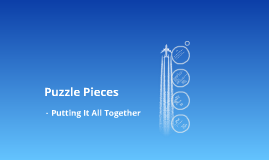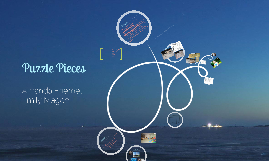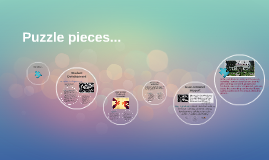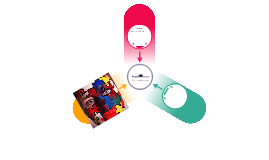Puzzle pieces...
Transcript: one piece in a large puzzle... Ask a variety of in depth interview questions. Teach customer service skills for effective and streamline processes. Ask student assistants what they want to gain from their work experience within the library. Ask departments/units for student representatives to participate in department meetings, etc. Assign shifts in multiple units to test likes/dislikes, and gain a variety of skills. Offer a variety of mentoring opportunities for staff and students. Allow them to help or lead special projects, such as: special exhibits or programs. During down times, allow for school work and studies to be done. Progressive Feedback for students workers: End of semester reviews. Ask for secondary reviews from peer mentors, staff, colleagues. It is important that information comes from those who work closely with the student worker. Debrief and follow-up, then review again. Open dialog - what is working vs. what isn't, and why. observe the needs of the students workers. my story... Progressive Feedback for potential student worker program: Don't be afraid to try & fail...this allows for learning and growth opportunities! Sandbox Ask for feedback and secondary review the program. Find staff that are interested in helping develop the program. Be flexible and evolve! Define users: Faculty, Staff, Students, Community Partners, other institutions, internal library employees and student workers. Peer to peer training allows for trust building, ongoing personal involvement, teamwork and collaboration, ownership of the workplace. Everyone is an intricate and valuable part of the library and university. An important piece of the puzzle. And of course, communication and collaboration is essential! Important note: peer mentors should not be forced into this role. ideas: create focus groups surveys statistics get progressive feedback try and try again - make adjustments as you go! example: UCR Library's Finals Stress Relief! Progressive Feedback User-centered support, a few questions to consider - What do the users want and/or need? Is it feasible? What are the costs? Do the benefits outweigh the cost? What does the library and the university want to accomplish? What is the library's role vs. what do users perceive as the library's role? Who can the library partner with? Student Dev. Ideas: Libraries are the "third place: literature has continued to support the notion of the academic library as a significant place for student engagement and learning outside the classroom..." Ideas: peer mentor trainings & meetings team building events Peer to peer projects, such as: exhibits, presentation, events. Key ingredients: Great customer service, effective listening, problem solving, development, collaboration, plan, communication, and fluidity. Peer to Peer Training & Teamwork Leah M. Dunn, "Moving Toward the User-Centered Library: Learning Behaviors and Their Impact on Library Planning" (2011). Proceedings of the Charleston Library Conference. http://dx.doi.org/10.5703/1288284314962 A user-centered approach will help the library break down perceived walls, cross barriers, and help cultivate collaborative relationships. Peer to peer training & Teamwork Approach: In the end, there are many puzzle pieces, including: student development, peer-to-peer training, teamwork, progressive feedback, user-centered approach, you, me, users, the surronding community, library staff & student workers) create a beautiful picture... approach and ideas.... Student Development All feedback is important and valuable for growth and improvements. Listening followed by action and follow through is vital to this process. Benefits & Ideas: Student Development Approach & beliefs: Promote life-long learning, community, engagement, growth & opportunities! Try to hire the best and the brightest! Keep in mind that this may be a student's first job or first "real" job. Roles and expectations should be clearly explained. Allow for second chances and growth. Walk in their shoes: "I was a student once", how did I make it through work, family obligations, school, etc? Everyone is different! What worked for one may not work for another. Need staff buy-in. Walk this journey with student workers, help them excel, and make a difference. We are helping to cultivate a person and our future! User-centered support Benefits to the mentor - Roll model role. Important & transferable leadership qualities and experiences. Sense of empowerment and ownership. Builds problem solving skills, mentors are able to following through on issues. Benefits to the mentee - Can see that they are being invested into. Feels more comfortable asking questions which is a benefit to users and library services. Less intimated about the training process. Puzzle pieces...

















